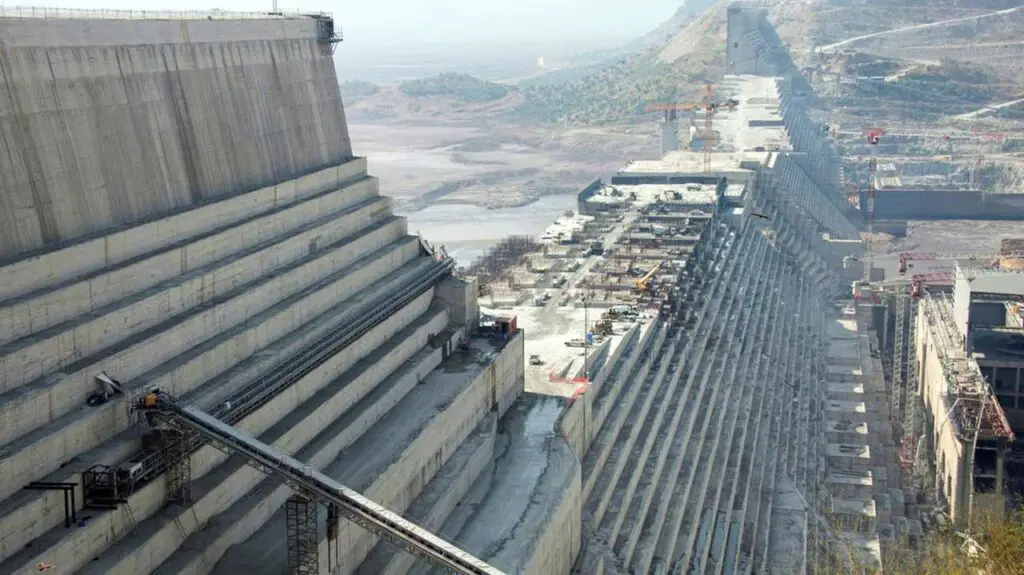- The DRC is viewed as a most promising member of the regional bloc offering a market of over 96 million people.
- DRC is also rich in many coveted minerals such as cobalt and Nickel, gold, and diamonds, which has caused a long-standing conflict.
- The EAC peace forces in the DRC were sent in early last year to restore peace and stability in the region.
The East Africa Community (EAC) has been touted as a model for regional economic blocs in Africa but the tension between Rwanda and the bloc’s newest member, DRC, is threatening to derail the region’s social and economic integration.
The two neighboring countries have had a dicey relationship in the recent past with the largest country of the EAC, the DRC, accusing the smallest country in the region, Rwanda, of supporting rebels within its borders.
The DRC is viewed as a most promising member of the regional bloc offering a market of over 96 million people which is slightly a third of the entire EAC population made up of seven countries.
DRC is also rich in many coveted minerals such as cobalt and Nickel, gold, and diamonds, which has caused a long-standing conflict, especially in the mineral-rich region of North East, which also happens to border Rwanda, one of the EAC’s fastest-growing economies.
The fighting in the DRC is also a civil one with the main government forces clashing with several small rebel groups the most renowned being the M23 rebels.
It is this group that operates in the North East area close to the Rwanda border and it is this group that is the center of contention between the two countries.
The DRC maintains that Rwanda is backing the M23 rebels with ammunition and food in exchange for minerals, an allegation that Kigali strongly denies. However, while the two sides are lodged in the tug of war, Kigali accuses the DRC of undermining its sovereignty by violating its air space and general territorial integrity.
EAC efforts to broker a peace deal
In the most recent move by the EAC to broker peace between Rwanda and the DRC, Burundi President and EAC Summit Chairman Evariste Ndayishimiye, was forced to call for an extraordinary summit of the East African Community Heads of State.
Held in Bujumbura, the Extra-Ordinary Summit sought to evaluate the “Security Situation in the Eastern Democratic Republic of Congo & Way Forward” and was chaired by President Ndayishimiye.
The media reported that relations between DR Congo and Rwanda had hit an all-time low and swift intervention was necessary.
True to the fact, at least three Rwandan army officials are reported to have been expelled from the DRC with allegations of being spies and inciting violence.
The East African Community Secretary-General Peter Mathuki took it upon himself to communicate with the DRC in a letter dated February 1st. The diplomat bid the government in Kinshasa to explain why the Rwandan officers were expelled despite the fact that they were serving at the regional force Headquarters under the authority of the EAC.
Also Read: Congo now wants a share of the East African Community EAC pie!
In the public letter, the official wrote; “The East African Community has learned with concern on 30th January 2023 of the deportation of 3 officers deployed by the Republic of Rwanda at the East African Community Regional Force Headquarters in Goma to Rwanda.”
He then reminded the government in Kinshasa that; “Your Excellency, you may recall that the deployment of the officers at the East African Community Regional Force Headquarters in Goma to support the Regional Command Centre was a decision of the Heads of State at their meeting on the Peace Process in the Eastern DRC.”
The EAC peace forces in the DRC were sent in early last year to restore peace and stability in the region but had little effect. At that time, dialogue between DRC and Rwanda was brokered by Kenya’s former president Uhuru Kenyatta but again the talks hit a dead end.
Kinshasa labels the M23 rebels a terrorist group and refuses any dialogue efforts. As a result, the region remains very unstable undermining ongoing economic development efforts.
Even though the DRC has a huge market to offer the rest of the EAC, the lack of peace and security keeps potential investors and traders from any engagement in the region.
This dilemma does not affect just affect the EAC. Because the DRC sits smack in the middle of the continent, it is a member of several regional bodies in the North, West, and South as well.
To date, the DRC is a member of the Southern African Development Community (SADC) and the Common Market for Eastern and Southern Africa (COMESA) in the south.
In central Africa, the DRC is a member of the Economic Community of Central African States (ECCAS), the Economic Community of the Great Lakes Countries (CEPGL), and the International Conference on the Great Lakes Region (ICGLR) as well.
Also Read: Beyond tension: The Promise of GERD for Africa
The DRC is the largest country in Sub-Saharan Africa (SSA) and by comparison, it is roughly about the size of Western Europe.
Regional peace organs like the AU peacekeepers and global organs like the UN have for decades failed to end the conflict effectively displacing thousands and leaving millions in abject poverty as their resources fuel modern technology.
If the EAC succeeds in brokering a long-term peace deal, DRC has the potential for an economic revolution not just within its borders but in the region.
In natural resources alone, DRC’s coveted cobalt, nickel, and copper are used in technology devices such as phones and laptops as well as lithium batteries.
The DRC has the potential of building the world’s largest hydropower. When completed, the DRC’s Inga hydropower dam will have the capacity to produce 40,000MW which is more than double the Three Gorges in China, the world’s largest power station with a capacity of only 22,500 MW.
